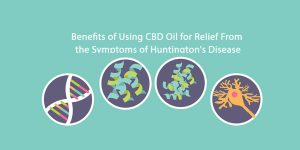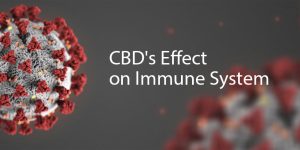Relatively new in the scientific field, the endocannabinoid system (ECS) is one of the lesser-known systems of the body that help to ensure the body’s overall health and well-being. The ECS employs CB-1 and CB-2 receptors to achieve homeostasis which yields healthy functioning appetite, pain, sleep, inflammation, and more.
How many major systems are there in the body? Do you remember this from school?
The major body systems include: digestive, muscular, circulatory, endocrine, respiratory, reproductive, nervous, lymphatic, urinary, skeletal, and urinary.
In addition to these major systems, there are also other systems that are complex and varied, and they all work interdependently to ensure your overall health and well-being.
One of the lesser-known systems is the endocannabinoid system (ECS), which is relatively new in the scientific field.
Dr. L.A. Matsuda is credited with its discovery in the 1990s. He also originally discovered CB-1 endocannabinoid receptors.
THC mimics the body’s natural cannabinoids and binds with receptors to help regulate the body’s functions. It is also these CB-1 receptors and psychoactive properties of THC that produce the “high” feeling one experiences from cannabis.
CB-2 is another receptor in the ECS. CB-2 receptors and the immune system partner together to attempt to attain homeostasis, which is the point at which the body is functioning in balance and with a sense of normalcy, as it should, but additional CB-2 receptors are also located in the digestive system and other major body organs.
Studies continue to better understand the endocannabinoid system, but the past few decades have demonstrated that endocannabinoids modulate neurotransmitters and support the body’s vital physiological functions.
Achieving homeostasis yields healthy functioning of appetite, pain, sleep, inflammation, and more. There is also a connection between endocannabinoid and memory and learning.
It is hypothesized that dysfunction of the ECS may be a root cause of certain illnesses, such as epilepsy, arthritis, depression, pain, migraines, nausea, diabetes, cardiovascular issues and more.
It is further believed that there are therapeutic properties of cannabinol and that supplementing the body with this naturally occurring, plant-based cannabinoid may correct deficiencies by mirroring the body’s natural process and promoting the healthy production of the body’s own cannabinoids thereby restoring health and returning the body to homeostasis.
The discovery of the endocannabinoid system (ECS) is a fairly recent development. Studies are producing promising results and research continues. It is understood that the receptors discovered in the ECS system bind to plant-based cannabinoids and mirror the body’s natural process. This can result in relief from symptoms from a number of illnesses such as arthritis, depression, and pain, and it may help the body support the healthy functioning of the regulatory system and a return to homeostasis.

Top-rated CBD Products of 2024 Best CBD Oils Best CBD Gummies Best CBD Creams Best CBD Capsules User Experiences with CBD Testimonials from CBD Users...
Read More
How CBD Interacts with the Body CBD Metabolism:CBD is metabolized by the liver, breaking down into metabolites that may stay in your system for days,...
Read More
What is CBD Oil? Definition and Composition of CBD Oil Cannabidiol (CBD) oil is derived from the Cannabis Sativa plant, formulated to harness its therapeutic...
Read More
Huntington’s Disease is a neurodegenerative disorder with no known cure. Patients with HD may suffer rapid decline in their cognitive and motor function, but most...
Read More
What is an antioxidant? What is oxidative stress? How can CBD help fight this condition? Smart CBD Hub explores the answers to these questions and...
Read More
How long does it take for CBD oil to start working? It depends on often you use CBD, how you use it, and your body's...
Read More
The trichome production and lifecyle runs parallel to that of the cannabis plant. Trichomes serve as protectors from predators and indicators to farmers.
Read More
Your body keeps several tools in its toolbelt to battle potential internal and external threats. One of its most common tools is inflammation. This inflammatory...
Read More
Research seems to indicate that CBD oil boosts the immune system, but more studies need to be done to better understand CBD's role in keeping...
Read More
There is still some confusion regarding the legal status of CBD around the world despite the supplement’s increasing popularity. Most of this uncertainty revolves around...
Read More